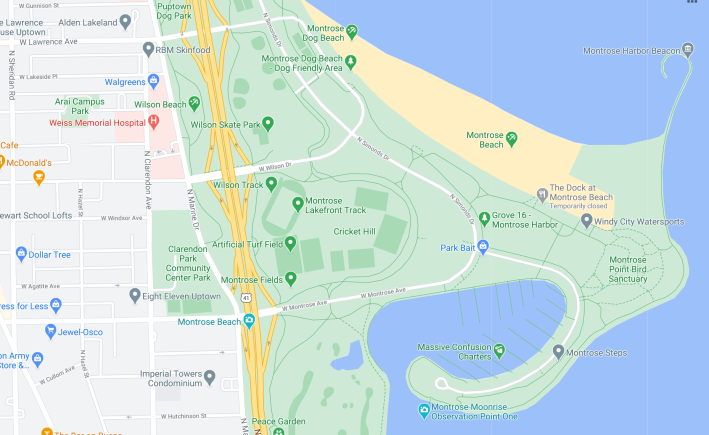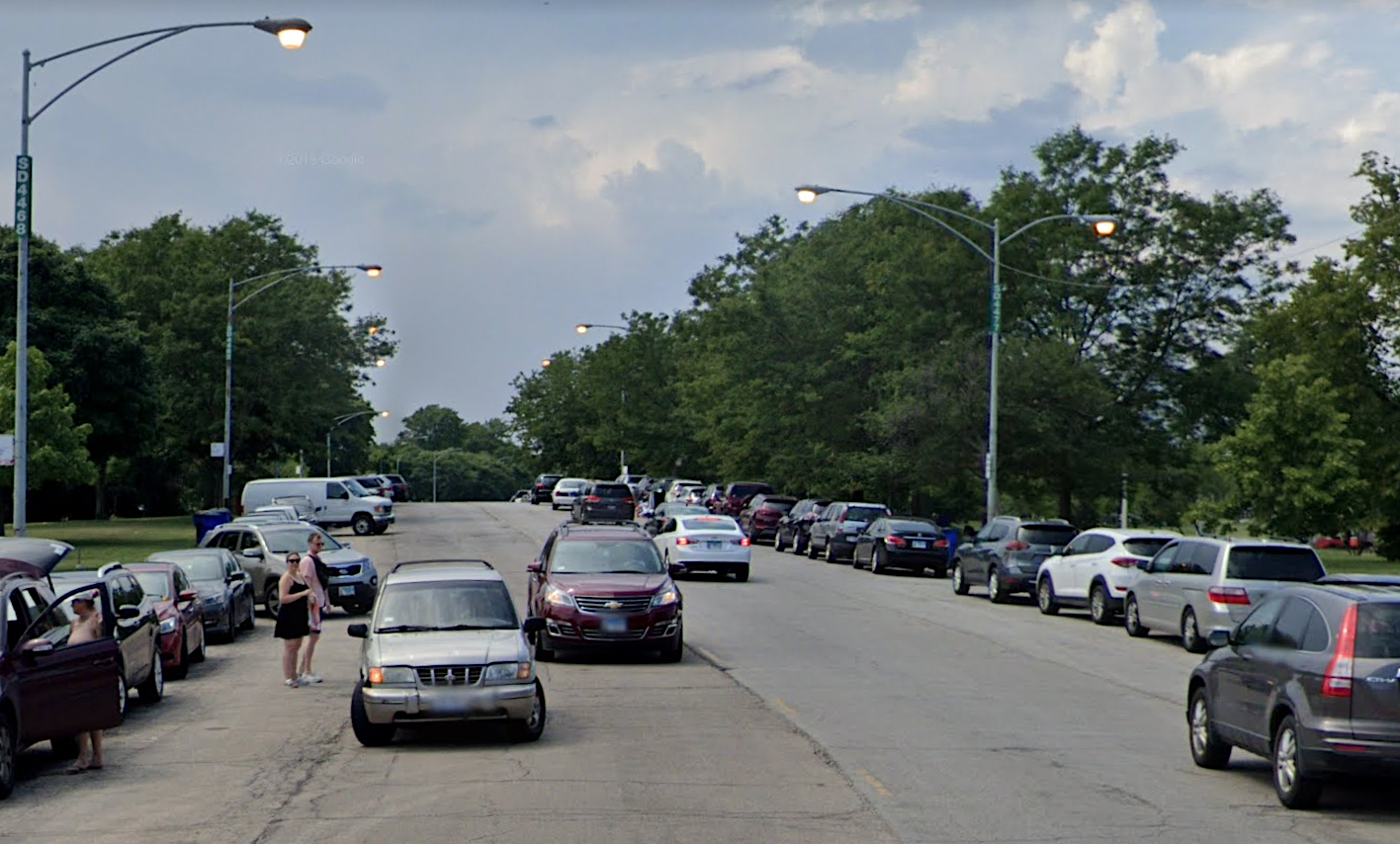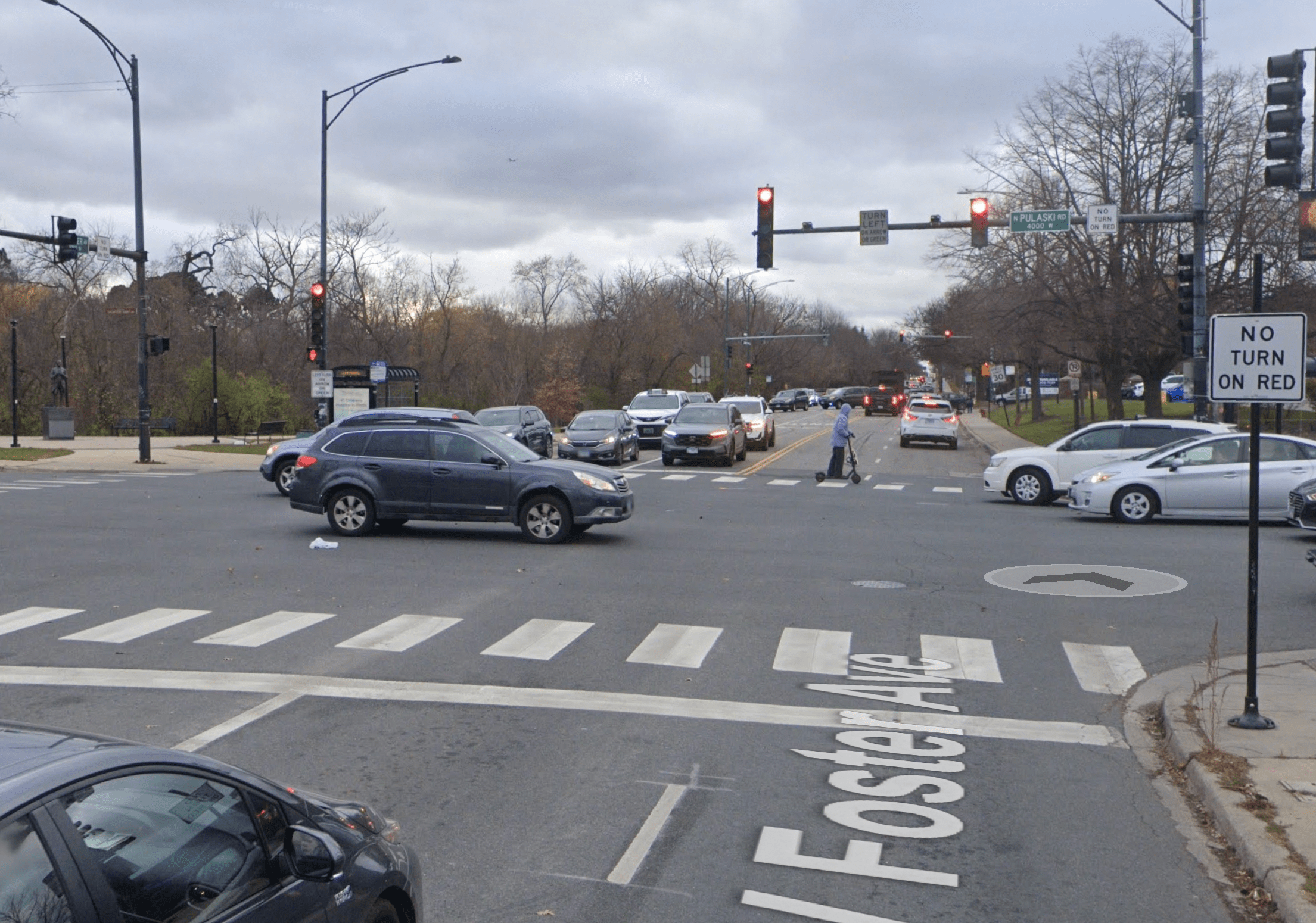Update 3/19/20, 9:30 PM: After the publication of this post, I saw a comment on a local birdwatching Facebook discussion group that pretty much eviscerates the notion that requiring people to pay to park on the North Side's Montrose Beach, one of the few major Chicago beaches that isn't metered, located in the majority-white Uptown neighborhood, is somehow a racial or environmental justice issue: "Those of us who bird on the South Side know [31st] Street Beach, South Shore Cultural Center, 63rd street beach and Rainbow Beach ALL have the meters. It is about EQUALITY... This is white people using environmental justice to move their own agenda. DISAPPROVE!"
From reading news coverage and a petition from the local running association, you'd think that the city's decision to start charging drivers for the privilege of storing their multi-ton metal boxes at Uptown's Montrose Beach represents a grave injustice. In reality, it's a commonsense move that will help make the lakefront less car-centric, i.e. safer, less congested, and less polluted; help the city's bottom line; and even, counterintuitively, make driving to the beach less of a hassle for those who need or choose to do so.
On Wednesday city workers were getting ready to install pay-and-display boxes at the beach and harbor, part of a larger push to monetize unmetered spots around the city, Block Club Chicago's Joe Ward reported. Chicago will get all the revenue from the new meters, instead of it going to the concessionaire for the city's hated 75-year parking contract. The meters will be installed on Montrose Avenue within the park and Montrose Harbor Drive, the road that curves around the fish hook-shaped peninsula that contains the harbor, plus parts of Wilson and Lawrence avenues inside the park and Simonds Drive, the road that closely parallels the shoreline.

Chicago's City Council signed off on the meters in a 30-to-20 vote as part of a measure creating more paid parking citywide. Uptown alderman James Cappleman supported the ordinance. Back in 2014, in the wake of a series of violent incidents at the beach, Cappleman floated the idea of reducing the number of parking spots as a strategy to prevent violence, noting that Oak Street Beach is an example of a popular beach with zero car spots. Cappleman's office told Block Club that he supported adding meters because it will encourage parking turnover, making it easier to find spots. That will also reduce congestion and pollution from drivers circling and idling while searching for a spot, or getting stuck in beach traffic.
A park advocate told Block Club that the meters will "restrict access" to the park, and the local bait shop owner said charging for parking will make it more difficult for customers to get to the shop. “It’s hard enough to access on a summer days.”
Well, yes, right now it's hard to drive to the harbor on a summer day, because there are traffic jams and it's difficult to find a parking space. Metered parking will encourage those who can walk, bike, or ride the bus to the beach to do so, and the increased parking turnover will make it easier find a space for those who need to or want to drive.
Sun-Times columnist Mark Brown argued that charging the fair value for storing your private property on the public is inequitable. "[People come] from all over the city, packing the park to the gills on summer weekends, as diverse a group of Chicagoans as you will find. And this is going to be a financial deterrent for some of them... I wonder if anyone understood that before making the decision."
Ironically, Brown's op-ed arguing that car parking is a social justice issue was called out by the Asian American Journalists Association for "language describing Asian Americans in an insensitive and dismissive light," leading the paper to delete a passage portraying Asian people at the harbor as "little" and "[more difficult] to converse with."
But to address the question of equity impacts from the new meters, plenty of spaces at the park will still be unmetered, albeit a farther walk from the beach and harbor. And for most people who have the means to drive to Montrose for a day at the beach, spending a few more dollars on parking is not going to be a major hardship. Just like gasoline and maintenance, metered parking is one of the expenses you should budget for if you're going to drive around Chicago.
However, the city could make the policy more equitable by improving walking, biking, and transit access to the beach, such as increasing the frequency of Montrose Avenue CTA bus service or introducing free weekend shuttles from nearby Red Line stations. Replacing the largely unusable sidewalk bike lanes inside the Lawrence and Wilson viaducts of Lake Shore Drive, which the city apparently installed in a wrongheaded and ultimately unsuccessful effort to displace homeless encampments, with on-street protected lanes would also help.
"During the summer, the lakefront from Montrose to Foster is filled with great normal families doing great normal summer stuff," a (presumably white, native-born) "easier to converse with" retired surgeon from Wrigleyville told Brown. "I bet a bunch won’t be able to afford $10 to park for eight hours, especially coming off the pandemic.”
Who are these "great normal families doing great normal stuff" that spend 8 hours at the beach?
— Carl Giometti (@Chicagio) March 19, 2021
At the end of his column, Brown urges his readers to "speak up now and let City Hall know [asking people to pay for the privilege of beachside parking is] unacceptable."
The Chicago Area Runner's Association also used a "think of the poor people" argument in its petition calling on the city to reverse the decision. "These meters are not just a new tax on the park’s North Side neighbors. It’s a barrier to diverse Chicagoans from all over the city who have long come to Montrose Harbor." But surely another major incentive for the petition is that CARA members are annoyed they'll have to start paying when they drive to the beach to go running. If only there was some other travel mode they could use to get there!
Uptown resident and Mayor's Bicycle Advisory Council representative Melanie Eckner says she has mixed feelings about the addition of meters since "as far as I can tell, the meter revenue won't go into installing badly needed ADA-compliant bus stops, crosswalks, and bike lanes" on Simonds Drive.
But she also thinks free or cheap shuttle service to the beach, ideally a COVID-19-safer open trolley, would make the paid parking more equitable and palatable to neighbors. "Uptown residents would support a shuttle because there are a lot of people with kids, seniors, and people with disabilities who struggle to get out there." She added that it would also reduce the number of beachgoers looking for free parking on nearby residential streets.




